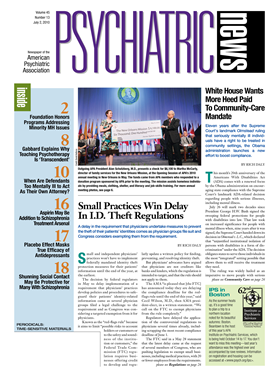The day that former First Lady Rosalynn Carter unerstood that a person may appear physically healthy and yet suffer from hidden psychiatric illness or mental wounds came nearly 60 years ago.
She was driving the babysitter home with her 2-year-old son in the car when they were struck from behind by another vehicle, which flipped her car over. Although she, her son, and the babysitter were not physically injured, the psychological impact of the accident deeply affected her long afterwards.
“After my own terrifying experience, whenever I saw the headline of an article about an accident, my heart raced,” she wrote in her new book, Within Our Reach: Ending the Mental Health Crisis. “I became sweaty and shook all over, and it was a very long time before I could make myself drive past the place where my accident occurred.”
The story is one of many personal accounts in her book about her own experiences and those of people who have recovered from serious mental illness to illustrate the impact of both psychological trauma and mental illness.
“My hope is that this book will dispel the myths and misconceptions about mental illness,” Carter said at a book signing at the Library of Congress in Washington, D.C., in May.
The personal stories also illustrate the daunting stigma that still lingers about mental illness. Indeed, the societal stigma surrounding mental illness not only has hampered funding efforts and access to care but also has kept many from seeking treatment for their psychiatric conditions.
“I wrote this book so we would get over the stigma and get on with what we need to do,” Carter emphasized.
But the book is also about her hope that policymakers, clinicians, and people with mental illness will take advantage of the many effective treatments and approaches to psychiatric illness that have emerged in recent decades.
Recovery Goal Becomes Prominent
“The goal of recovery is the single biggest advance [in mental health] in the last 30 years,” she said.
Carter has been a national leader and advocate for improved mental health since her husband, former President Jimmy Carter, was a candidate for president in the 1970s. In her book she repeatedly stresses the importance of people not only seeking mental health treatment when they need it but also taking “a key role in their treatment and recovery.” Her book is rife with examples of individuals overcoming incredible mental health challenges through the care of family members and clinicians, but also through their own perseverance and hope that they could recover.
It's a lesson in the power of hope that other leaders in the mental health field have learned as well. Carter described a meeting with Thomas Insel, M.D., director of the National Institute of Mental Health, in which he lamented that science had not discovered drugs that would permanently cure mental illness. At the same time, however, he and other leaders have begun embracing the recovery philosophy, which maintains that most people with mental illness can live happy and productive lives if they receive the help they need.
“We're learning from the consumer advocates that recovery works,” Carter added.
Many Challenges Yet to Be Met
Unfortunatley the hope provided by available and emerging treatments and patient support systems is challenged by the daunting number of people who need mental health care and are unable to afford it or sometimes even find it. Carter confronts the range of such challenges, including an underfunded public-health system, insurance discrimination, and private care that many simply cannot afford.
Financial obstacles are not actually the main problem, according to Carter. Rather, she noted, the problem is that the nearly $120 billion spent each year on direct mental health care is so inefficiently spent that it often does not benefit the people with mental illness for whom the money was intended in the first place. Recounting a conversation she had with Ronald Mandersheid, Ph.D., a sociologist and researcher—and one of many mental health experts she interviewed for the book—Carter concluded that “our real problem is not a lack of enough money.”
“He explained that because our services and funding sources are so fragmented, so uncoordinated, so complicated, we fall short of realizing all of the benefits we might expect from such a huge investment in mental health,” she said.
Carter praised passage of the federal insurance parity law in 2008 and hailed the wider availability of health insurance under the health care reform law passed this year, but even those two measures will leave treatment gaps, she pointed out. She identified peer-support networks, community residential facilities, and vocational training for people with mental illness as critical needs that will require sources of funding other than those provided under health reform.
Acknowledging that more work remains to be done, Carter emphasized that the two recent federal initiatives—and the way in which regulators implement them—could vastly improve the recovery prospects for many people with mental illness.
“If we can get [strong regulations] done, it can change the way we get mental health care done,” Carter said.

